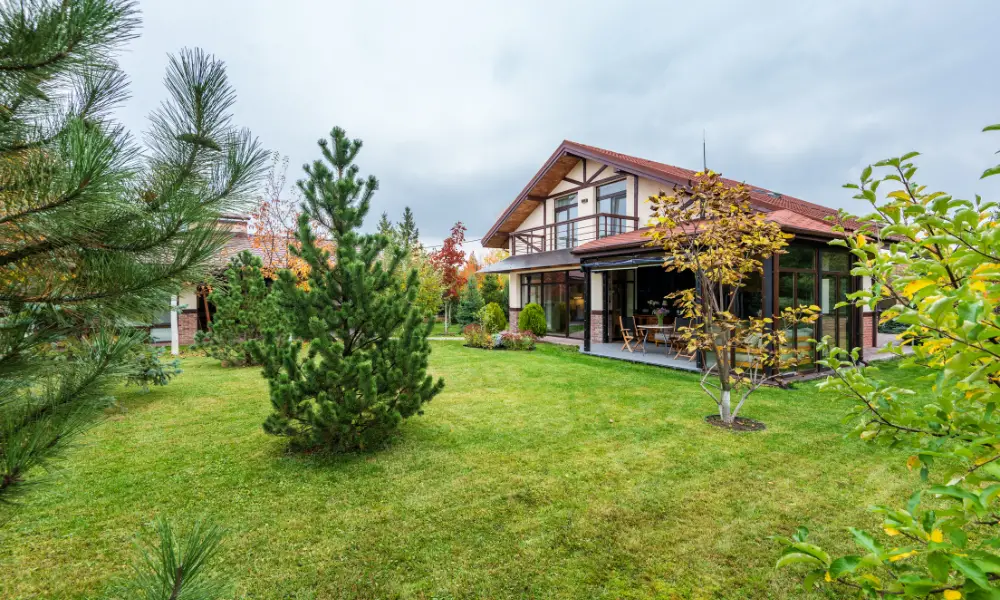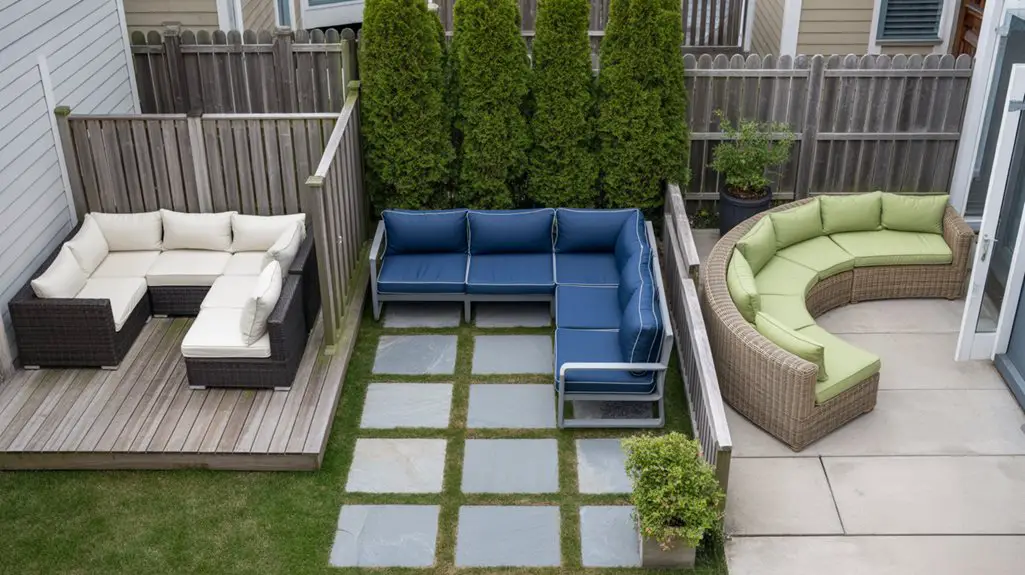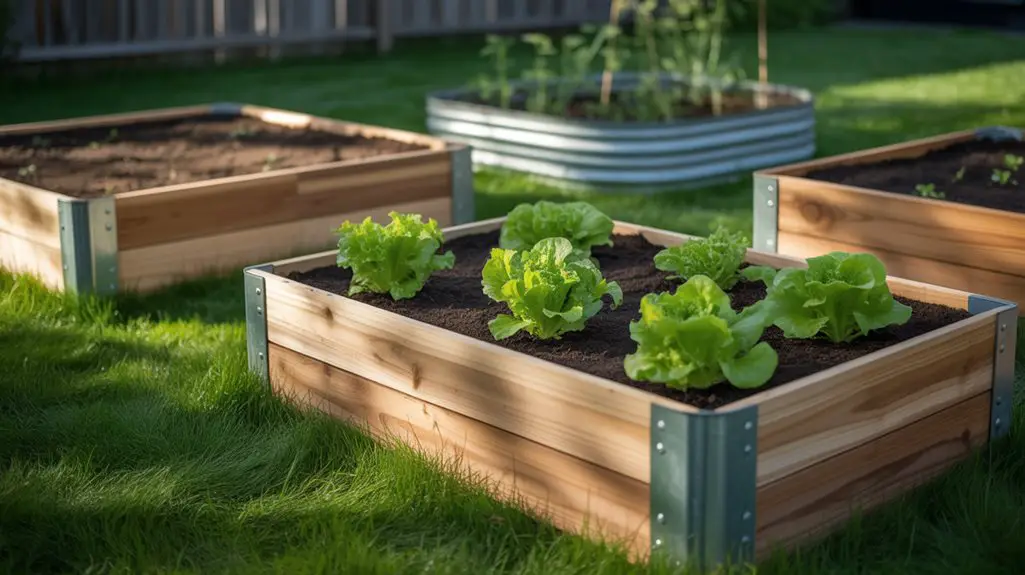Have you ever wondered if your backyard is considered public or private property?
It’s a valid question, especially when you’re trying to determine what activities are permitted in your personal outdoor space.
With the popularity of drone photography and the potential risk of trespassers, knowing where the line between public and private lies can help put your mind at ease.
So let’s dive in and uncover some practical solutions for maintaining your privacy while still enjoying all that your outdoor space has to offer.
Local Ordinances and Property Laws

You might be surprised to find out that local ordinances and property laws can actually have a significant impact on whether your backyard is considered public or private!
Zoning regulations, noise ordinances, outdoor lighting restrictions, and building permits all play a part in defining the boundaries of your personal space.
To avoid any neighbor disputes or unpleasant surprises down the line, it’s essential to familiarize yourself with these rules and regulations.
One key aspect to consider when determining if your backyard is public or private involves zoning regulations.
These are established by your local government and dictate how land within their jurisdiction can be used. For instance, residential zones generally have stricter guidelines for privacy than commercial zones.
Noise ordinances also come into play here – some areas may have designated quiet hours during which excessive noise (like loud music or construction) is prohibited.
Outdoor lighting restrictions are another factor; certain types of light might not be allowed in specific areas due to concerns about light pollution or disturbing wildlife.
To truly understand whether your backyard is considered public or private by law, you should take the time to research these various factors for your specific location.
This can include consulting neighbors who might’ve already dealt with similar situations, visiting your local municipal office for information on zoning codes and other relevant ordinances, or seeking advice from professionals like real estate agents or attorneys specializing in property law.
By being proactive in understanding these aspects of local legislation and how they apply to you, you’ll ensure that both you and those around you can enjoy a peaceful coexistence while making the most of your outdoor spaces.
Fencing and Property Boundaries

Fencing and property boundaries act as a fortress, shielding one’s private haven from the prying eyes of the outside world.
Establishing and maintaining these barriers not only ensures privacy but also helps prevent potential disputes with neighbors over property lines.
To successfully create this barrier, consider backyard landscaping options, choose suitable fence materials, and navigate any existing boundary disputes.
- Backyard landscaping: Incorporating hedges or trees along your property line can provide additional privacy while enhancing your outdoor space’s aesthetic appeal.
- Fence materials: Selecting the right material for your fence is crucial; consider factors such as durability, cost, maintenance requirements, and how well it complements your home’s design.
- Boundary disputes: If disagreements arise over property lines or fences, try to resolve them amicably through neighbor agreements or consult local ordinances for guidance on proper procedures.
Managing fencing and property boundaries effectively requires open communication with neighbors regarding shared expectations about the upkeep of these areas.
Regularly discuss property line maintenance tasks such as trimming shrubs or repairing broken fence panels to ensure both parties contribute fairly to their surroundings’ appearance.
By fostering positive relationships with those around you and staying informed about local regulations governing fencing and boundary lines, you can preserve both privacy and harmony in your backyard oasis.
Visibility from Public Spaces

Maintaining privacy in one’s outdoor space while also ensuring it isn’t easily visible from public areas can be achieved through strategic landscaping and well-planned fencing designs.
The public viewability of your backyard can lead to neighborly disputes, surveillance concerns, and a general lack of designated privacy.
By implementing proper security measures and taking the time to thoughtfully design your outdoor space, you’ll create a more enjoyable environment for yourself and your loved ones.
One way to prevent visibility from public spaces is by using hedges or tall plants as natural barriers. These green walls not only provide you with added privacy but also help reduce noise pollution from nearby streets.
Moreover, they lend an aesthetically pleasing touch to your garden while still maintaining a friendly atmosphere that won’t alienate neighbors.
You should consider planting trees or installing trellises with climbing plants strategically around your property to minimize exposure without appearing too reclusive.
Another effective and visually appealing solution is investing in decorative fences or screens that complement the exterior style of your home. This approach provides dual benefits: enhancing curb appeal while offering increased levels of seclusion.
There are countless materials and styles available on the market today, so you’re sure to find something that suits both your taste and budget.
Remember, creating an outdoor sanctuary doesn’t mean sacrificing beauty for function—with a little creativity and effort, you can have both!
Is Your Backyard Private Property

It’s essential to understand that a homeowner’s backyard is indeed private property, and as such, it warrants protection and respect from others.
Just because your backyard might be visible from public spaces doesn’t mean it is open for anyone to enter or use without your permission.
To ensure the privacy of your outdoor space, you can consider investing in backyard surveillance systems and implementing outdoor privacy solutions like fences or tall hedges.
Additionally, being aware of trespassing consequences in your area can help you protect your rights as a property owner.
Landscaping for privacy is another effective way to create a more secluded backyard environment.
By strategically planting trees and shrubs or installing other forms of barriers like trellises with climbing plants, you can block the view into your yard from public areas or neighboring properties.
These natural elements not only provide enhanced security but also add aesthetic value to your home. Furthermore, they offer environmental benefits by promoting biodiversity and improving air quality.
To reinforce the message that your backyard is private property and prevent unwanted visitors from entering, consider placing clear property signage around the perimeter of your yard.
Signs indicating ‘Private Property,’ ‘No Trespassing,’ or similar messages can act as a deterrent for potential intruders while asserting your rights as a homeowner.
Remember that maintaining both physical boundaries through landscaping measures and clear communication via signage are crucial steps in preserving the sanctity of your private space while still enjoying its beauty in peace.
Conclusion
In conclusion, your backyard is a sacred sanctuary that only the bravest dare to trespass. While local ordinances and property laws dictate specific boundaries, remember that fencing and visibility from public spaces can impact perceptions of privacy.
Ultimately, it’s up to you to ensure your backyard remains the epitome of seclusion. Familiarize yourself with local regulations and take necessary precautions if needed. Keep enjoying your private oasis!




